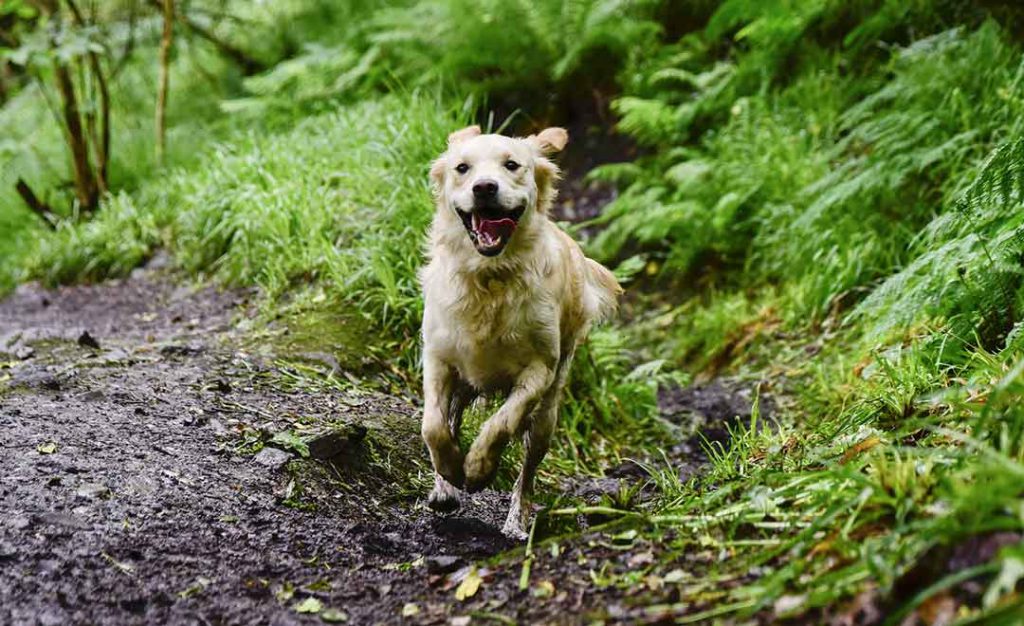
Are you familiar with the ‘Zoomies’ or ‘wall of death’? Described as a sudden burst of “frenetic energy”, the ‘Zoomies’ are typically displayed by your dog running round and round or back and forth.
These behaviours often take place at a similar time of day (most commonly around the ‘Witching Hours’). That being said, they can be experienced multiple times in one day. We expect to see small bursts of energy from young puppies but when it occurs frequently, for lengthy periods, or accompanied by more challenging behaviours such as biting, jumping up, or stealing of inappropriate items, that’s when we need to work out what’s going on. If your dog has zoomies and is in the midst of a frantic moment, then most importantly you want to ensure everyone is going to be safe from harm - this includes you!
Why do dogs get the ‘Zoomies’?
Most commonly experienced in young puppies, there are a number of reasons a dog (of any age) may be displaying these behaviours. To understand the reason and whether it’s a cause for concern, there are a few things to look out for. So, why do dogs get zoomies?
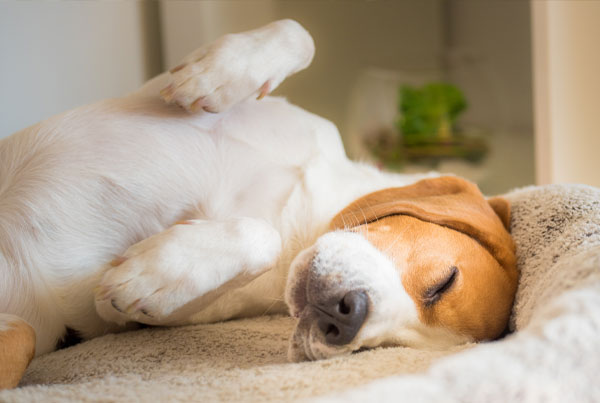
OVERTIREDNESS
If your dog has zoomies at night, it could be that they are overtired. You’ve probably heard about overtired (human) toddlers having meltdowns before bedtime. Well, this is similar in the response experienced by overtired dogs. There absolutely are times where there can be “too much of a good thing” - balance is key.
STRESS
The ‘Zoomies’ can be a way for our stressed out dogs to expel some pent up frustration or feelings of anxiety. This is similar to how we might go for a run, grab a glass of wine, or talk things through with a partner when we’re feeling stressed as a way to decompress.
POOR DIET
Poor diet can be another reason why your dog gets the zoomies. Excess sugars and carbs in a dog’s diet can cause hyperactive behaviour. If you’re seeing your dog is being particularly hectic within the hour after their dinner, it’s definitely worth looking into the nutritional quality of what you’re feeding.
As herbal pet care specialists, we offer a range of supplements for dogs. These can act as a fantastic additional support to their immune systems or to those simply lacking nutrition. Browse our website today and take a look for yourself!
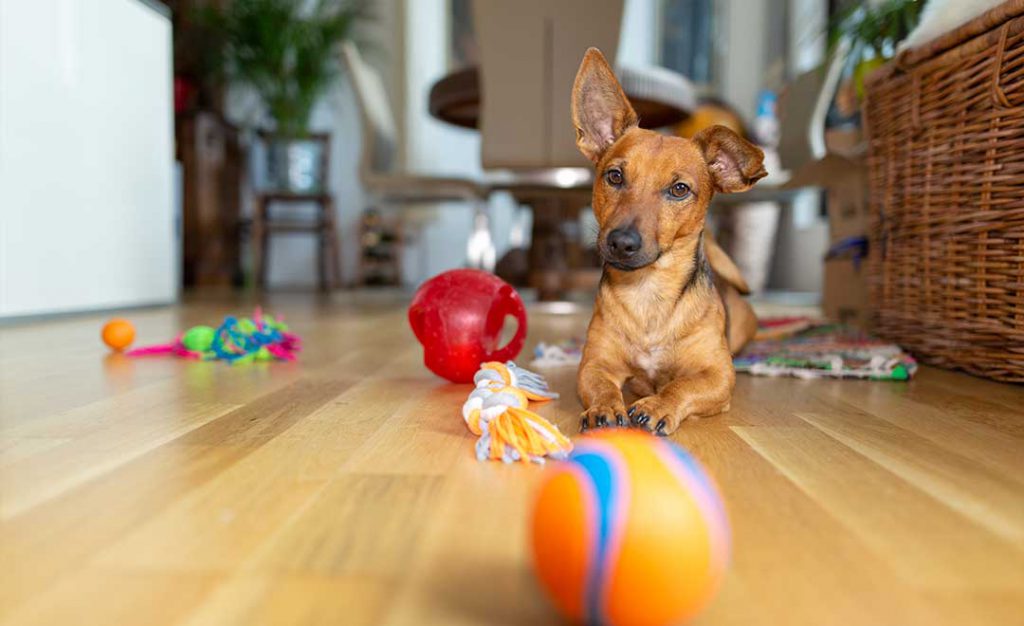
BOREDOM
Just as an overtired dog can display these undesirable behaviours, so can a bored dog. A dog with little to no physical activity or mental stimulation might get trapped into repetitive behaviours. This could be running in circles as a way to relieve boredom.
PAIN
You might not expect to see this on the list - but dogs who are quietly suffering from some form of pain can use physical exertion as a way of increasing adrenaline to help deal with painful conditions. If none of the above reasons seems to fit your dog, or your dog has the ‘Zoomies’ when they haven’t before, then it’s worth getting a vet check up.
What can I do if my dog has the ‘Zoomies’?
Try not to appease the behaviour by grabbing hold of your dog as this can cause frustration, which may lead to more biting. It sometimes is just a case of letting them get it out of their system and then looking at how you can deter a reoccurrence in the future. Young children may encourage the behaviour by running themselves or shrieking. If this occurs when your dog has zoomies, move them calmly out of the room so they also don’t get knocked over.
It can be wise to encourage your dog out to the garden where there may be fewer obstacles for them to bash into. Throw some treats to tempt them outside. This also has the added benefit of getting their nose into action which can calm down the more energetic behaviour.
How do I prevent the ‘Zoomies’?
So now you may know why your dog gets the zoomies, the next question is how do you prevent it?
We expect to see, especially younger, dogs have the occasional burst of energy - it’s a great way to have some fun! But when your dog has zoomies and displays this behaviour for prolonged periods or regularly then we want to look at the ways in which we can avoid this continuing. Especially if it’s at a predictable time such as post-walk or dinner.
JOURNAL
Keeping a diary of your dog’s behaviour is always valuable. It allows you to keep track of when these behaviours occur and what might have prompted them. Noting what activities your dog has engaged in, this can allow you to tell if any elements of their lifestyle are impacting behaviour. This could include walks, training classes when they eat, and when they’ve slept.
PROMOTE SLEEP
It’s often counterintuitive to try to tire your dog out to reduce their more hectic behaviours and better focus on calming activities and increased amount of sleep. Puppies should be getting around 18 hours of sleep per 24 hour period, reducing to roughly 12-16 for adult dogs. You can find out more about how much exercise puppies need by reading one of our recent blogs.
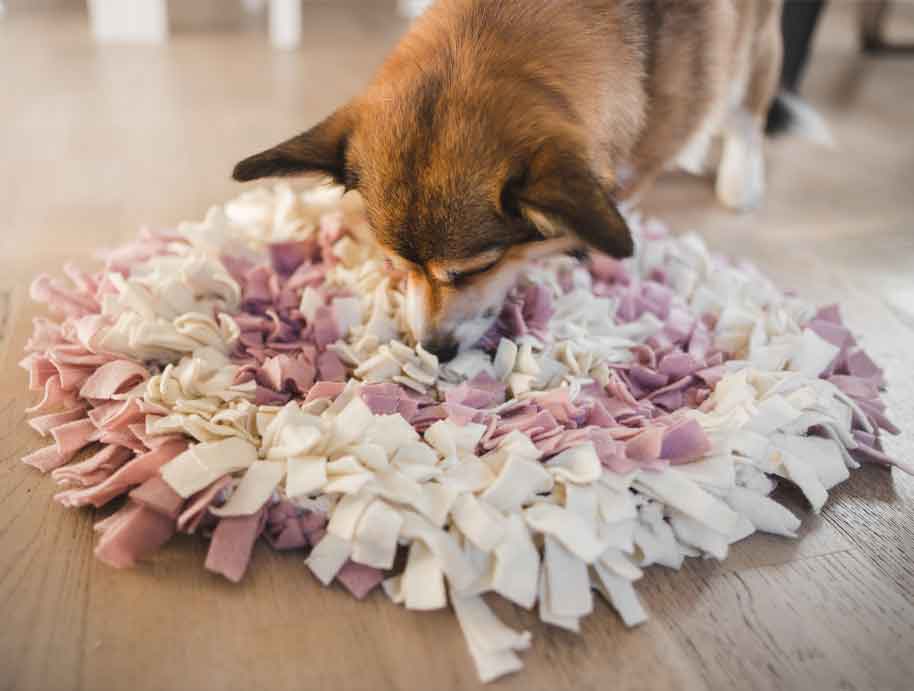
BE PROACTIVE
If you know your dog’s ‘Witching Hour’ is approaching and they're likely to get a little frantic, then be proactive with calming activities in advance. Focus their attention on sniffing, chewing, or licking. These all reduce stress and promote happy hormones. Sniffing is also great for expelling energy. Add in short, easy mental tasks throughout the day, such as simple training sessions or food puzzles. This will help to ensure a balance of physical and mental exertion.
REDUCE STRESS
If your dog has zoomies following a walk or a training class, then you may need to switch up your approach to those. Try a scentwork class as opposed to agility, for example. Or move away from walks in the local dog park to a quieter forest or fields. We ideally want our dogs to come home from any eternal activity and rest soundly soon after, rather than appear more energetic than when you went out.
Now that we have answered that all-important question of 'why do dogs get the zoomies?', you should know the different signs to look out for. As always, if you are unsure about your dog’s behaviour or wellbeing, it’s best to speak to a veterinary professional. This way you can determine if there is an underlying health issue that could be causing this. We'd love to hear more tips for preventing the frantic hour if your dog has zoomies! So please leave your comments in the fields below.
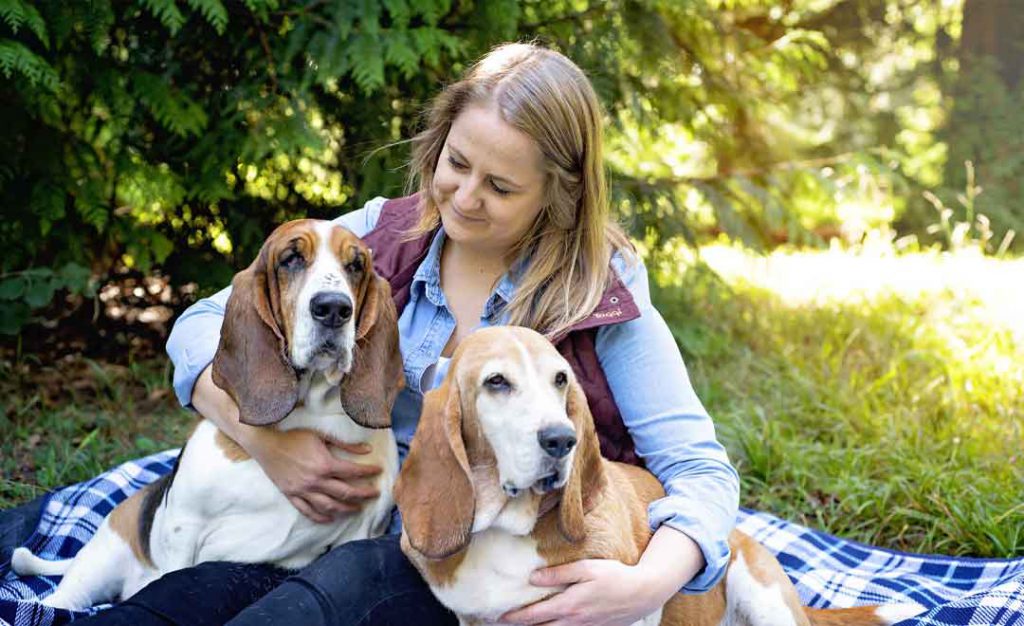
Written by Caroline Wilkinson, Certified Animal Behaviourist & qualified dog trainer
Keeping your dog happy and healthy with herbal pet care
At Dorwest Herbs, we offer a range of dog supplements to help support different conditions and common issues. Whether you’d like to get them started on everyday herbal remedies for dogs, or are looking for something more specific such as joint care for dogs, we have a product to help support them.
Try our herbal pet care products today and see the difference they can make! For any questions on our dog supplement products and how what the right dosage is for your pet, contact us. We are here to offer expert advice whenever you need. Get in touch today by calling +44 (0) 1308 879 272 or email info@dorwestherbs.com.







